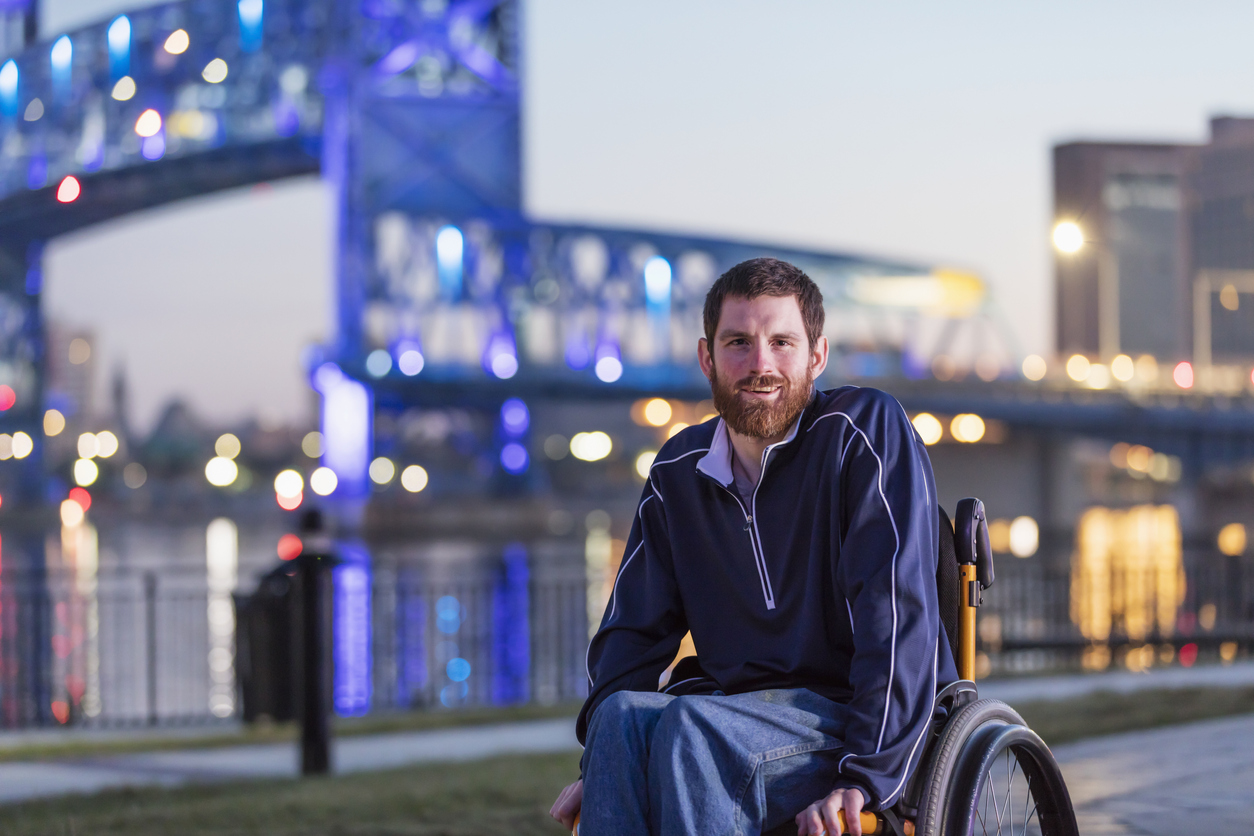Does Cerebral Palsy get worse with age? This is a common question caregivers in Briarwood and throughout the greater New York area ask. The simple answer is, no. Cerebral palsy (CP) is a non-progressive disorder. In other words, that specific condition will not worsen as we age, but the symptoms can change.
Still, aging brings about a host of other changes that can adversely affect your loved one’s health when coupled with cerebral palsy. One can prepare for these changes by senior proofing a home and finding professional help when needed.
Aging in Place with Cerebral Palsy
Today, an estimated 1,000,000 adults in the US live with CP. To understand the challenges ahead, let’s begin with a good understanding of CP.
Definitions and Symptoms
Per the US Centers for Disease Control (CDC), cerebral palsy (CP) is a group of disorders in one’s ability to move and maintain posture and balance. It’s often diagnosed early in patients and is the most common motor disability in children.
- “Cerebral” means the condition is related to the brain.
- And “palsy” means problems/weakness with muscles.
According to the Mayo Clinic, the condition is caused by abnormal brain development or acute damage to a developing brain. The disease is usually diagnosed by the preschool years, with symptoms like:
- Impaired movement that might seem like exaggerated reflexes
- Involuntary movements
- Floppiness or spasticity of the trunk and limbs
- Unusual postures
- And unsteadiness when walking
Sometimes, a combination of these issues leads to a diagnosis. And symptoms vary from one person to the next. A patient with severe CP may need special devices to walk at a very young age. Others don’t, though the exact symptoms can change as a person ages. So your patient’s living space must suit their unique needs.
Common Challenges for Aging Adults with Cerebral Palsy
One cerebral palsy guide says some common hurdles for adults with CP are:
- Premature aging
- Mobility and walking problems
- Swallowing disorders
- Post-impairment syndrome
- Mental health conditions
Premature aging and mobility issues can be helped by “senior proofing” that patient’s home.
Preparing a Home for a Senior CP Patient
Dozens of articles are available on the internet to help prepare your patient’s living area. Be sure to remove throw rugs, cords or anything else that can lead to a trip and fall. Add extra lighting and nightlights, too.
Pay close attention to bathrooms. AARP provides a good list of “senior proofing” ideas, and they’re appropriate for anyone planning to age in place, especially those with CP.
Their suggestions include:
- Textured, nonslip strips in bathtubs and showers
- Using nonslip wax on tile floors
- Shower seats and grab bars in bathrooms
- Lever handle doorknobs
- And high-profile toilets
The goal is to make your restrooms as safe as possible for someone struggling with balance or motor issues.
What About Pets?
We know pets can improve your family member’s quality of life a lot. One study of adults aged 50 – 80 suggests that 88 percent of seniors who own pets feel more loved. These seniors also reported that they enjoyed having a routing associated with pet care. Many said they appreciated the sense of purpose pet ownership gives them.
- But pet ownership can bring some dangers into your CP patient’s home.
- As they age, your patient becomes more likely to trip and fall on a pet’s bed or toys.
- Some maintenance tasks, such as cleaning a litter box or walking a big dog, can become dangerous if your loved one struggles with balance or motor skills.
Over time, cognitive disorders like those associated with dementia or Alzheimer’s disease (AD) can make caring for a pet more difficult, especially when compounded with cerebral palsy.
So ultimately, we’d say it’s best to avoid adopting any new pets, especially large ones. And be sure to keep pet toys, bedding, pet stairs and the like confined to one room where your loved one doesn’t go often.
David York Understands Cerebral Palsy in Briarwood
If the above information about Cerebral Palsy has been useful, check out David York Agency’s blog for more articles about senior care in Briarwood.
David York understands the challenges of caregiving and is willing to provide all the support you need.
If you’d like more information about David York Agency’s qualified, compassionate caregivers, contact us at 718.376.7755. A free phone consultation can help you decide what services might be best. If you’d like to hear more from us, please like us on Facebook or follow us on Twitter or LinkedIn.
David York Agency Home Healthcare remains committed to providing personalized care for your loved one. If you have questions about our services, please contact us. We can help you through the difficult times and give you the break you deserve!







